Nigeria’s 36 States’ Assemblies Adopt Harmonised Standing Orders for Legislative Unity New Framework Aims to Standardise Suspension, Impeachment, and Governance Procedures In a landmark move to eliminate procedural discrepancies and enhance legislative transparency, Nigeria’s 36 States’ Houses of Assembly have officially adopted and ratified harmonised standing orders. The new framework establishes a uniform legislative structure
Nigeria’s 36 States’ Assemblies Adopt Harmonised Standing Orders for Legislative Unity
New Framework Aims to Standardise Suspension, Impeachment, and Governance Procedures
In a landmark move to eliminate procedural discrepancies and enhance legislative transparency, Nigeria’s 36 States’ Houses of Assembly have officially adopted and ratified harmonised standing orders. The new framework establishes a uniform legislative structure that will govern crucial procedures such as suspension and impeachment of members, election of presiding officers, budgetary processes, and executive confirmations across all states.
The ratification took place during a workshop in Lagos, convened by the Conference of Speakers of State Legislatures of Nigeria in collaboration with Konrad Adenauer Stiftung (KAS) and the National Institute for Legislative and Democratic Studies (NILDS).
This development signifies a major step towards institutionalizing consistency, accountability, and efficiency in legislative governance at the state level.
Rivers State Electorates Sue President Tinubu Over Emergency Rule
Key Aspects of the Harmonised Standing Orders
The harmonised standing orders aim to standardise various legislative processes across all 36 state legislatures, ensuring clarity and consistency in:
- Disciplinary Actions – Procedures for suspension, impeachment, and removal of presiding officers and members are now clearly outlined to prevent arbitrary actions.
- Budgetary Oversight – A uniform framework for state budget approvals and financial oversight will strengthen legislative control over public funds.
- Executive Confirmations – Standardised procedures for confirming appointments by governors will reduce political interference and enhance transparency.
- Election of Presiding Officers – Guidelines for electing Speakers, Deputy Speakers, and other key officials have been streamlined.
- Legislative Reports and Resolutions – Adoption of committee reports, statutory reports, and ratification of constitutional amendments and treaties will follow a unified process.
- Establishment of Committees – Rules for forming special and ad hoc committees have been harmonised to ensure uniformity in legislative inquiries.
- Executive Sessions – A structured approach to closed-door meetings will ensure confidentiality while maintaining procedural integrity.
By adopting this standardised legislative framework, state assemblies seek to enhance collaboration, reduce procedural inconsistencies, and fortify their independence against external interference.
Speakers’ Conference Chairman: “A Monumental Step for Legislative Reform”
Chairman of the Conference of Speakers of State Legislatures of Nigeria, Adebo Ogundoyin, described the adoption of the harmonised standing orders as a “monumental step” toward strengthening democracy at the sub-national level.
Ogundoyin, who is also the Speaker of the Oyo State House of Assembly, stated that Nigeria is now joining advanced democracies like the United States, South Africa, and Rwanda, which have adopted harmonised legislative frameworks.
“This reform, which began in 2021, is more than just a procedural adjustment. It is a strategic step toward improving efficiency, transparency, and uniformity across all state Houses of Assembly. By standardising our rules, we are fostering stronger legislative collaboration, improved oversight, and a more accountable governance structure,” Ogundoyin stated.
He further expressed confidence that within the next three months, all state legislatures would fully adopt and implement the harmonised standing orders.
“We are proud to draw inspiration from countries where legislative frameworks have been successfully harmonised. The United States operates a centralised standing order across its 50 states, and on the African continent, South Africa and Rwanda have implemented similar systems. Nigeria is now set to follow suit,” he added.
Global and Domestic Support for Legislative Standardisation
Konrad-Adenauer-Stiftung: “A More Cohesive Legislative Environment”
The Resident Representative of Konrad-Adenauer-Stiftung Nigeria, Marija Peran, highlighted the importance of the harmonised standing orders in creating a more cohesive and transparent legislative environment.
Citing recent crises in Lagos and Rivers States, Peran noted that procedural inconsistencies in legislative processes had fueled instability. She stressed that standardising legislative rules would promote efficiency and reduce conflicts in governance.
“We are only two and a half months into 2025, yet some Houses of Assembly have already experienced major upheavals. This reminds us that stability and democratic processes cannot be taken for granted,” Peran stated.
She further emphasized that harmonised standing orders serve as the backbone of legislative procedures, ensuring transparency, consistency, and effectiveness across all 36 states.
“The objectives of this initiative are clear: foster collaboration, reduce procedural discrepancies, and enhance legislative effectiveness,” she concluded.
National Institute for Legislative and Democratic Studies (NILDS): Strengthening Legislative Independence
Director-General of NILDS, Professor Abubakar Sulaiman, underscored the vulnerability of state legislatures due to executive interference. He emphasized that standardising legislative rules would:
- Prevent external disruptions and political manipulation by governors.
- Ensure procedural clarity in impeachment and suspension cases.
- Strengthen legislative independence through transparent governance frameworks.
“We must reflect deeply on the lessons from the political turmoil in Rivers and Lagos States. A harmonised legislative framework will promote consistency, protect state assemblies from undue interference, and reinforce democratic governance,” Sulaiman stated.
He further asserted that legislative standardisation is crucial for building a resilient democratic system where state legislatures function effectively and autonomously.
From Concept to Implementation: A Nine-Year Journey
The harmonisation of standing orders has been in the works since 2016 but gained momentum in 2021. The recent ratification in March 2025 marks the final stage of this historic legislative reform.
Over the next three months, each of the 36 Houses of Assembly is expected to integrate and adopt the uniform rules. This implementation phase will ensure that the new standing orders become the official operating framework for all state legislatures in Nigeria.
With this development, Nigeria is now positioned to redefine legislative governance at the state level, ensuring greater transparency, efficiency, and resilience against external interference.
A Defining Moment for Nigeria’s Legislative System
The adoption of harmonised standing orders by Nigeria’s 36 States’ Houses of Assembly represents a major milestone in legislative reform. By introducing uniform guidelines for suspension, impeachment, budget approvals, and legislative oversight, the new framework eliminates procedural ambiguities and strengthens governance structures.
With lessons drawn from advanced democracies like the United States, South Africa, and Rwanda, Nigeria’s state legislatures are now on a path towards greater stability, collaboration, and institutional autonomy.
As the implementation phase begins, all eyes are on the state assemblies to see how effectively they integrate and enforce these new rules in their legislative operations.

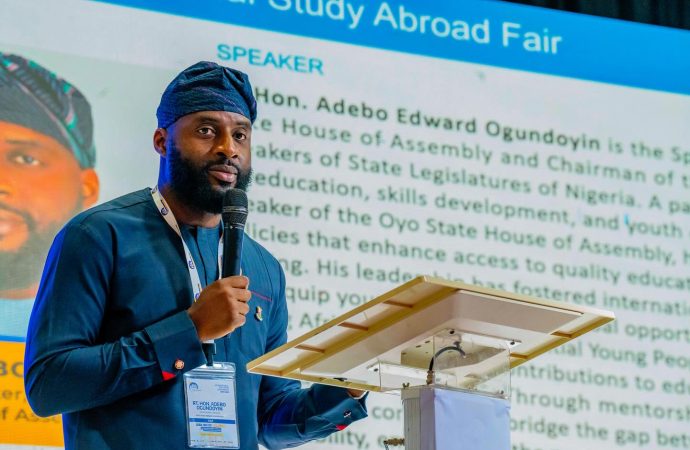
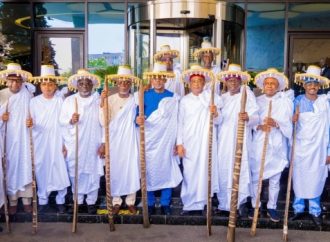


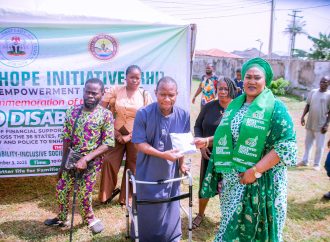
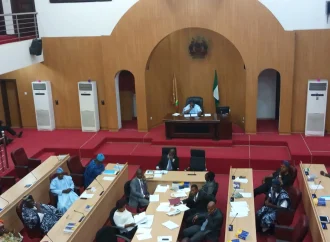



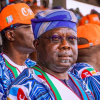







Leave a Comment
Your email address will not be published. Required fields are marked with *